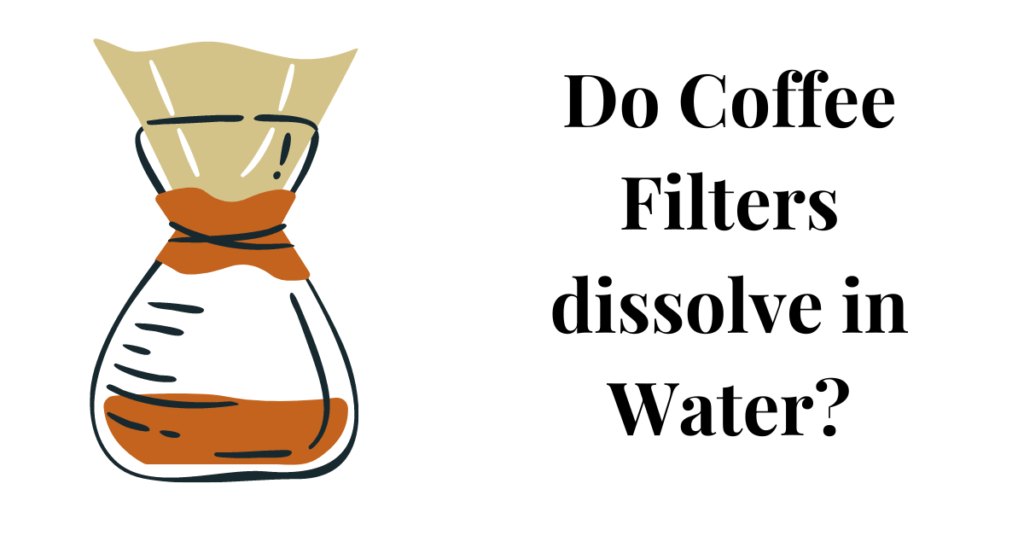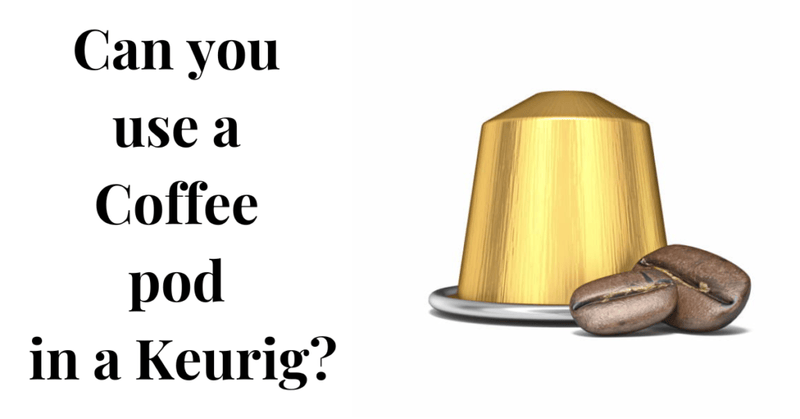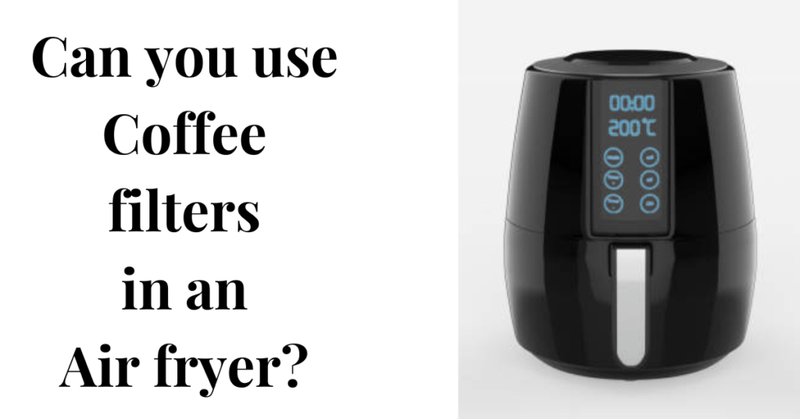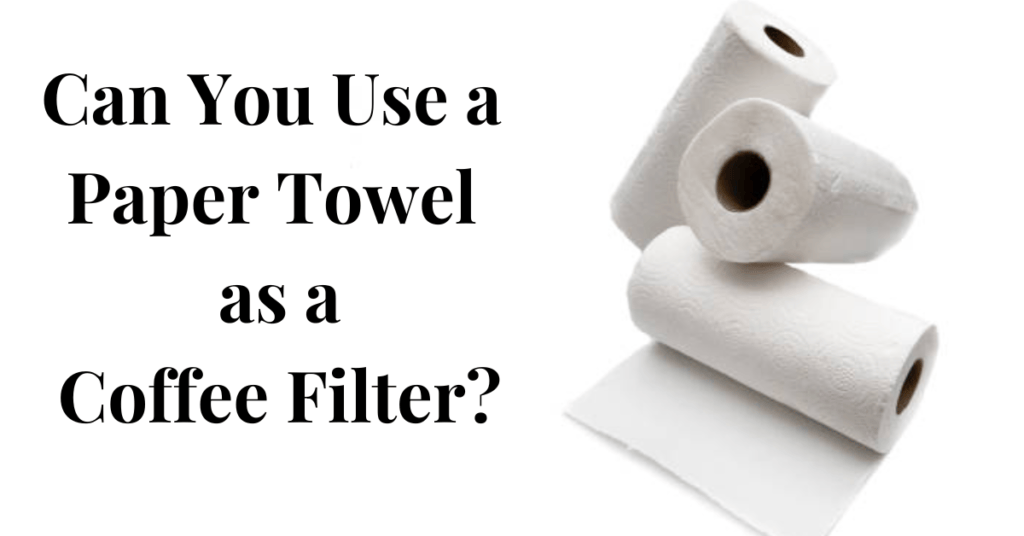Coffee filters are essential for brewing a smooth cup, but Do Coffee Filters Dissolve in Water? Made from specially designed paper, they trap grounds while allowing water to pass. Using a proper coffee filtered method ensures clarity and purity, while their versatile composition makes them useful beyond just brewing coffee.
As an affiliate site, we are associated with the amazon. We might receive a commission when you use links or recommendations on our website to make qualified purchases. The cost you pay for the goods or services is unaffected by this.
Table of Contents
Do Coffee Filters Dissolve in Water: Do Coffee Filters Filter Water?
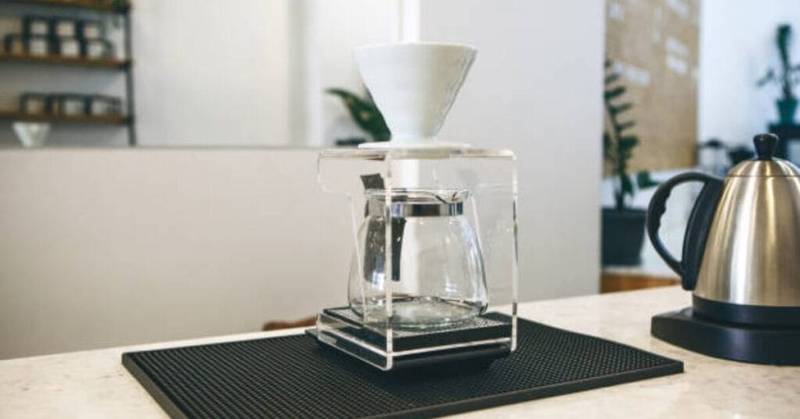
Coffee filters are indeed effective at filtering Water. While they are primarily designed for filtering coffee grounds during the brewing process, their composition and design make them suitable for other filtration purposes as well.
Coffee filters are typically made of porous paper, which allows Water to pass through while trapping particles and impurities. This makes them useful for filtering out sediment, debris, and even some microorganisms from Water.
However, the effectiveness of coffee filters for water filtration may vary depending on factors such as the size and type of particles present in the Water, as well as the quality of the filter itself.
While they can be a convenient and inexpensive option for basic water filtration needs, they may not be as effective as specialized water filtration systems for removing specific contaminants or purifying Water for drinking purposes.
Coffee filters, typically composed of cellulose fibers derived from wood pulp, do not fully dissolve in Water. The structural integrity of these filters is maintained through manufacturing processes such as mechanical and chemical bonding. While cellulose fibers can break down in Water, they do not undergo complete dissolution.
Thinner coffee filters may disintegrate more readily in water compared to thicker ones, influenced by factors such as fiber density and paper thickness. However, Do Coffee Filters Dissolve in Water depends largely on how they are engineered, as most filters are designed to withstand brewing, with additives and treatments applied to enhance durability and performance.
The temperature of the Water used during brewing and the duration of exposure are critical factors affecting the dissolution of coffee filters. Hot Water accelerates the breakdown of cellulose fibers, particularly in thinner or lower-quality filters. Prolonged exposure to Water can also contribute to the eventual disintegration of the filter.
While users may observe some level of disintegration or weakening of coffee filters over time, particularly after prolonged use or exposure to hot Water, this is not complete dissolution. Instead, it reflects the gradual breakdown of the filter’s structure due to its cellulose composition and environmental conditions.
Using Coffee Filters in Water Filtration Systems

Introduction to Using Coffee Filters in Water Filtration Systems
Coffee filters, primarily designed for brewing coffee, can also be repurposed for water filtration. For many people wondering, Do Coffee Filters Dissolve in Water, this approach offers a cost-effective and readily available solution for basic filtration needs. Here, we explore the benefits and limitations of using coffee filters in water filtration systems.
1. Cost-Effectiveness and Accessibility
- Coffee filters are inexpensive and widely available, making them an accessible option for water filtration, especially in emergencies or low-resource environments.
- Compared to specialized water filtration cartridges or systems, coffee filters offer a budget-friendly alternative without compromising basic filtration capabilities.
2. Particle Filtration
- The porous nature of coffee filters allows Water to pass through while trapping particles and impurities, such as sediment, debris, and some microorganisms.
- Coffee filters effectively remove visible contaminants from Water, improving its clarity and reducing turbidity.
3. Limitations and Considerations
- While coffee filters can effectively filter out larger particles and debris, they may not remove all contaminants present in Water, such as dissolved chemicals, heavy metals, or pathogens.
- The filtration efficiency of coffee filters may vary depending on factors such as the quality of the filter, the size and type of particles in the Water, and the flow rate.
- Coffee filters are not designed for long-term or heavy-duty water filtration purposes. Prolonged use may lead to clogging and reduced filtration effectiveness.
4. Pre-Filtration and Improvised Systems
- Coffee filters can serve as pre-filters in improvised water filtration systems, helping to remove larger particles and extend the lifespan of downstream filtration components.
- When combined with additional filtration layers, such as activated carbon or fine mesh screens, coffee filters can enhance the overall effectiveness of improvised water filtration systems.
5. Conclusion
- While coffee filters offer a convenient and cost-effective solution for basic water filtration needs, they have limitations in terms of removing specific contaminants and maintaining long-term filtration efficiency.
- When used judiciously and in combination with other filtration methods, coffee filters can play a valuable role in providing access to clean and safe drinking water, particularly in temporary or emergency.
Types of Coffee Filters

There are several types of coffee filters available on the market, each with its own characteristics, advantages, and suitability for different brewing methods. When asking Do Coffee Filters Dissolve in Water, it’s helpful to understand their size, shape, quality, and materials—especially when filters are used to boil water or handle high temperatures. Let’s delve into these types, exploring their features and which options are often considered the best.
1. Paper Filters:
- Size and Shape: Paper filters come in various sizes to fit different coffee makers, such as cone-shaped filters for pour-over brewing and basket-shaped filters for drip coffee machines.
- Quality: The quality of paper filters can vary based on thickness, density, and material composition. High-quality filters are typically thicker and more porous, allowing for better extraction while preventing grounds from seeping through.
- Features: Some paper filters have additional features, such as pre-folded edges or reinforced seams, to ensure stability and prevent tearing during brewing.
- Best Ones: Melitta and Chemex paper filters are highly regarded for their quality and compatibility with their respective brewing devices. They are often preferred for their reliable performance and ability to produce clean, sediment-free coffee.
2. Metal Filters:
- Size and Shape: Metal filters come in various sizes and shapes, including disk-shaped filters for AeroPress and cone-shaped filters for pour-over methods.
- Quality: Metal filters are typically made of stainless steel or fine mesh, offering durability and reusability compared to paper filters. The quality of metal filters is often determined by the gauge of the mesh and the precision of the perforations.
- Features: Metal filters allow more oils and fine particles to pass through, resulting in a fuller-bodied and potentially richer-tasting coffee compared to paper filters. They are also eco-friendly and cost-effective in the long run.
- Best Ones: Stainless steel mesh filters, such as those made by Able Brewing and Fellow, are popular choices among coffee enthusiasts for their durability, versatility, and ability to produce a nuanced flavor profile.
3. Cloth Filters:
- Size and Shape: Cloth filters are typically cone-shaped or cylindrical and come in various sizes to fit different brewing devices.
- Quality: Cloth filters are made of natural materials such as cotton or hemp, offering a reusable and eco-friendly alternative to paper filters. The quality of cloth filters depends on the weave density and material purity.
- Features: Cloth filters can produce a clean cup of coffee with a fuller body and more nuanced flavors compared to paper filters. They require rinsing and periodic cleaning, but can last for months or even years with proper care.
- Best Ones: Hario and CoffeeSock are reputable brands known for their high-quality cloth filters, which are favored by those who prefer a sustainable and eco-conscious brewing method.
Conclusion: The “best” coffee filter ultimately depends on personal preference, brewing method, and desired coffee flavor profile. Paper filters offer convenience and consistency, while metal filters provide richness and depth.
Cloth filters offer sustainability and unique flavor characteristics. When considering Do Coffee Filters Dissolve in Water, experimenting with different filter types can help determine the ideal choice for individual taste preferences and brewing techniques, including options like a metal filter for added durability and reuse.
Pros and Cons of Different Coffee Filters
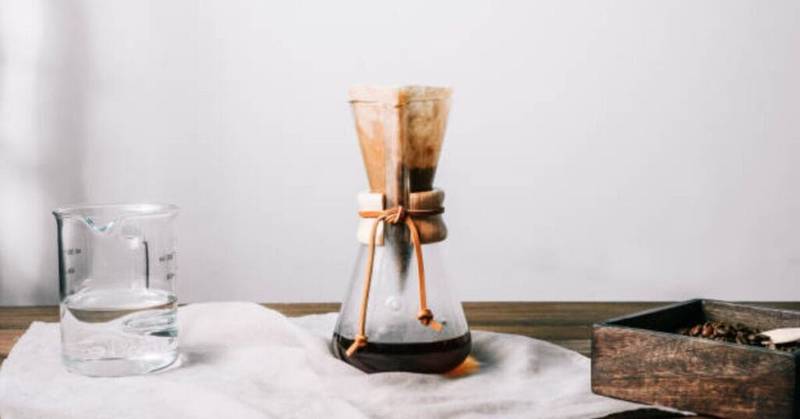
Certainly! Here are the pros and cons of different types of coffee filters:
1. Paper Filters:
Pros:
- Clean Cup: Paper filters effectively trap coffee grounds, resulting in a clean and sediment-free cup of coffee.
- Consistency: They provide consistent extraction, making it easier to replicate your preferred brew.
- Convenience: Paper filters are disposable, eliminating the need for cleaning and maintenance.
- Wide Availability: Paper filters are widely available and come in various sizes to fit different brewing devices.
Cons:
- Absorption: Paper filters absorb some of the coffee oils and flavors, potentially leading to a lighter-bodied brew.
- Environmental Impact: Disposable paper filters contribute to waste generation and may not be as environmentally friendly as reusable options.
- Cost: Continuous purchase of disposable paper filters can add up over time, making them less cost-effective in the long run.
2. Metal Filters:
Pros:
- Reusable: Metal filters are reusable and eco-friendly, reducing waste and overall environmental impact.
- Fuller Body: Metal filters allow more coffee oils and sediment to pass through, resulting in a fuller-bodied and potentially richer-tasting brew.
- Cost-Effective: While metal filters have a higher upfront cost, their reusability makes them more cost-effective over time.
Cons:
- Maintenance: Metal filters require regular cleaning and maintenance to prevent clogging and maintain optimal performance.
- Flavor Impact: Metal filters can alter the flavor profile of the coffee by allowing more oils and fine particles to pass through, which may not be preferred by some coffee drinkers.
- Compatibility: Metal filters may only be compatible with some brewing devices, limiting their versatility compared to paper filters.
3. Cloth Filters:
Pros:
- Sustainability: Cloth filters are reusable and environmentally friendly, reducing waste and overall environmental impact.
- Unique Flavor: Cloth filters allow more oils and sediment to pass through, resulting in a distinctive flavor profile with a fuller body and potentially more nuanced flavors.
- Longevity: With proper care, cloth filters can last for months or even years, making them a durable and cost-effective option in the long run.
Cons:
- Maintenance: Cloth filters require rinsing and periodic cleaning to prevent the buildup of coffee oils and sediment.
- Inconsistency: Cloth filters may produce slightly inconsistent results compared to paper or metal filters due to variations in weave density and material properties.
- Availability: Cloth filters may be less widely available compared to paper or metal filters, limiting accessibility for some users.
Alternatives to Coffee Filters for Filtering Water
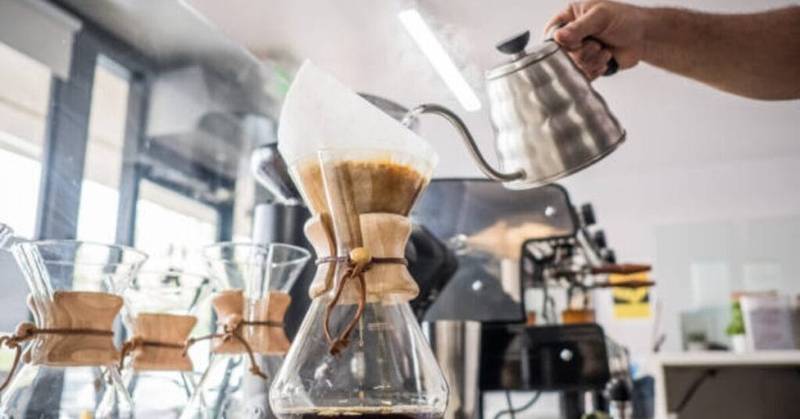
Certainly! Here are some alternatives to coffee filters for filtering water:
1. Cheesecloth:
- Cheesecloth is a loosely woven cotton cloth commonly used in cooking and crafting.
- It can effectively filter out larger particles and sediment from Water, but may be less effective at removing smaller contaminants.
- Cheesecloth can be used as a pre-filter in combination with other filtration methods for improved water clarity.
2. Fine Mesh Sieve:
- A fine mesh sieve or strainer with a tightly woven mesh can effectively remove larger particles and debris from Water.
- While it may not provide comprehensive filtration, it can help improve water clarity and remove visible impurities.
- Fine mesh sieves are readily available in kitchenware stores and are suitable for small-scale filtration needs.
3. Activated Carbon Filters:
- Activated carbon filters are commonly used in water filtration systems to remove impurities and improve taste.
- These filters are made from activated carbon, which has a porous structure that adsorbs contaminants and chemicals from Water.
- Activated carbon filters can effectively remove chlorine, odors, and some organic compounds, resulting in cleaner and better-tasting Water.
4. Boiling:
- Boiling Water is one of the oldest methods.
- Boiling Water for at least one minute kills most bacteria, viruses, and parasites, making it safe to drink.
- While boiling does not remove all contaminants, it is an effective method for emergency water purification when other filtration options are unavailable.
5. Ceramic Filters:
- Ceramic filters are porous ceramic cylinders or disks that trap contaminants as Water passes through them.
- These filters can remove bacteria, protozoa, and sediment from Water, providing reliable filtration in areas with poor water quality.
- Ceramic filters are often used in gravity-fed filtration systems and can be cleaned and reused multiple times.
6. UV Water Purifiers:
- UV water purifiers use ultraviolet light.
- While UV purifiers do not physically remove contaminants, they provide effective disinfection and are often used in conjunction with other filtration methods for comprehensive water treatment.
- UV water purifiers are suitable for use in both residential and outdoor settings and are available in portable and stationary models.
These alternatives offer a range of options for filtering Water, each with its advantages and limitations. The choice of filtration method depends on factors such as water quality, available resources, and specific filtration needs.
FAQS || Do Coffee Filters dissolve in Water
Can I use a Coffee Filter as a Water Filter?
Though primarily intended for coffee brewing, coffee filters can also serve as makeshift water filters. Their fine paper material effectively captures larger contaminants, making them useful in emergencies or outdoor activities where water filtration is needed.
How long does it take for Coffee Filters to decompose?
Coffee filters typically take six to eight months to decompose once they begin the biodegradation and composting process. This timeframe is relatively standard for organic decomposition and accelerates when the filter is wet.
Why do Coffee Filters collapse?
Coffee filters collapse when the hot water supply from the coffee maker doesn’t evenly distribute into the filter’s center. As a result, one side of the paper becomes overly wet and sags. However, numerous simple solutions are available to prevent this issue and keep your filters intact.
Can Cotton balls filter Water?
Cotton balls can be used to filter water effectively. Water passes through the gaps or pores, trapping suspended particles when arranged in layers alongside stone, gravel, sand, and charcoal. As the pores’ size decreases with each layer, particles are trapped throughout the filter, preventing rapid clogging in any single layer.
Bottom Part
In conclusion, while some coffee filters may partially dissolve in water due to their paper composition, most are designed to withstand the brewing process. When asking Do Coffee Filters Dissolve in Water, factors such as thickness, processing, and additives play a key role. Understanding Do Coffee Filters Dissolve in Water also highlights why a wet filter can maintain structure during everyday brewing rituals.

